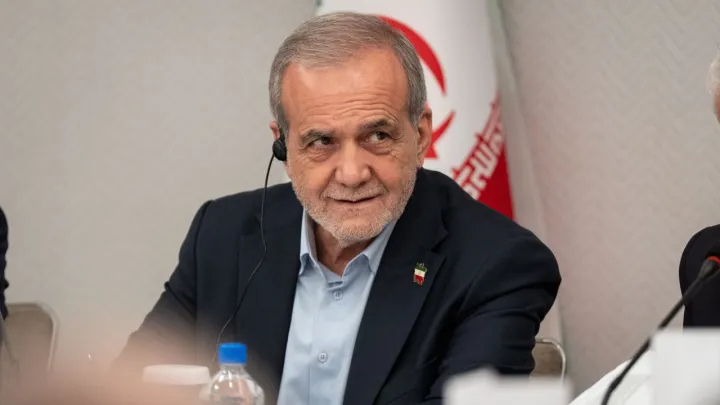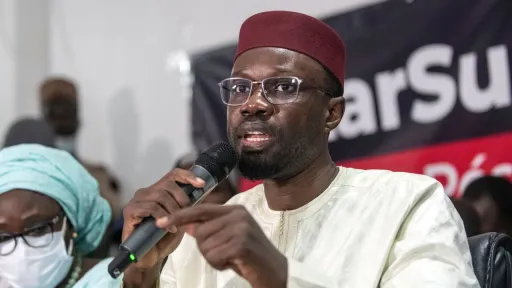By Nuri Aden
When she walked the ramp as a model, her grace would elicit gasps from an audience entranced by her beauty. Faraja Nyalandu, Miss World Tanzania 2004, then gave it all up to walk the talk and make a difference.
Faraja is the founder of Shule Direct, a technology platform that enables millions of children in junior and high school across Tanzania to access educational materials that would otherwise be out of their reach.
It took her four years after graduating from the University of East London with a law degree in 2009 to embark on a journey that would transform the sprawling African nation's education sector.
Faraja's labour of love ensures that the national school curriculum reaches the farthest corners of Tanzania the moment it is released in the capital city of Dar es Salaam.
For the less privileged in rural Tanzania, this quick and easy access to educational content is a godsend as their children get a shot at escaping poverty, guided by the light of learning.
So, how did someone born into affluence, educated at the best institutes, and sashaying through the world of glamour and glitz find her calling in service to those denied a proper education?
Faraja's story follows the trajectory of a conscientious few who realise the power of technology as a great leveller and leverage it to change lives.
"Technology has a great role to play in achieving learning and teaching goals. Shule Direct offers educational content through the web and a simple mobile phone. This includes training on various subjects in accordance with the national curriculum," Faraja tells TRT Afrika on the sidelines of TRT World Forum's NEXT conference.
“This technology is also very useful for the girl child, given the myriad challenges they face. A girl child misses coming to class due to the pressure of household chores, sometimes due to pregnancy, and other family problems she might be going through. Shule Direct makes it easier for the girl child to receive training at home," she explains.
Born mission
Despite her privileged childhood, which included receiving quality education in Dar es Salaam and moving abroad for higher studies, the harsh realities of her native country never escaped Faraj
In 2013, she founded Shule Direct as a social enterprise, encouraged by her personal e-learning experience of staying connected to her academic environment as she balanced parenting and studying.
Faraja also knew about the challenges in accessing study resources back home in Tanzania, which further motivated her to devise a solution to create a semblance of equality in the academic sector by digitally providing educational materials to all students, regardless of their background.
Faraja says that Shule Direct now goes way beyond than extending just academic support to less privileged students. The platform also helps them hone their digital skills, preparing them for potential careers in content creation.
Shule Direct partners with qualified teachers to develop comprehensive web and mobile curricula that encompass lessons, tutorials, quizzes, and multimedia content.
According to Faraja, Shule Direct also bridges the gap in the country's teacher-education ratio. Previously collated data shows that Tanzanian primary schools struggle with a teacher-student ratio of 1:180, battling a scarcity of more than 40,000 primary schoolteachers.
Education mismatch
Tanzania, a nation of young people with more than 50 per cent of the population aged below 18, faces the challenge of educating them despite the government's declaration of free universal primary and secondary education.
Reports on the state of education in Tanzania reveal that the sector suffers from crippling challenges such as inadequate numbers of qualified teachers, lack of adequate learning and teaching materials, shortage of classes, and a dearth of educational tools.
Early in 2023, the National Examinations Council of Tanzania discontinued the schools and students' ranking system.
While announcing the move, the organisation's acting executive secretary, Athumani Salumu Amasi, listed prevailing unfair competition, disparity between urban and rural schools, inequality in the education sector, and the prevalence of different learning environments as the reasons for this action.
This is where Shule Direct comes in. "We use technology platforms to provide curricula for primary and secondary school students so that they access educational material and also provide teachers with extra knowledge and resources to become better teachers," says Faraja.
Her efforts haven't gone unnoticed. The innovation and societal zeal inherent in Shule Direct have fetched Faraja various accolades.
Faraja has been honoured with the "Leading Woman in Technology in Africa" award. In 2016, she was recognised at the Tanzania Leadership Awards. Africa Youth Awards, too, named Faraja among the 100 Most Influential Young Africans.
Faraja sits on various boards and leads in some, serving as the chairperson of Tanzania Education Network/Mtandao wa Elimu Tanzania.
Late last year, she was elected as a board member of the Global Campaign for Education (GCE). In 2020, she was named among the Young Global Leaders by the World Economic Forum.
For a young woman, the youngest of her family, that's perhaps more than what Faraja set out to achieve in her quest for the beauty of giving.























